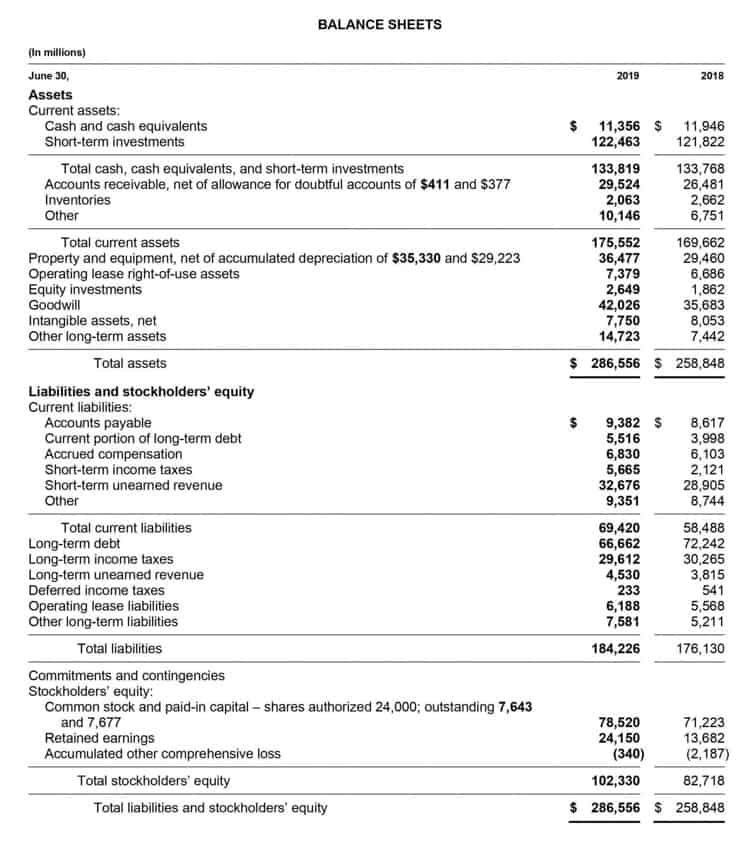
Accounting provides a promising career, full of chances for you to grow and progress with the correct equipment, and training, but most importantly concentrating on staying expert in any accounting course. These tasks involve recording financial transactions and summarising them in financial statements such as balance sheets, income statements, and cash flow statements. The primary goal is to provide an accurate picture of a business’s financial health. The reason for this is that although accounting information consists of numerical data, the math tools used to record the numerical data are very simple, really just addition and subtraction.
- So, we know that BEC is widely considered to be the easiest CPA exam, but where are the other CPA exam sections in order of difficulty?
- The cowboy will be riding a horse to perform various tasks, while the horse jockey is simply interested in getting that horse from point A to point B as fast as possible.
- The use of algebraic methods is an element of many management accounting practices and techniques.
- Today’s accounting software, such as QuickBooks and Xero, automates many tasks that once required advanced maths skills.
- In my personal and professional experience over the last several years I would say that accountants don’t generally have a high excitement for math more so then any other industry.
- As an accounting student, your core business and accounting major curricula might include classes like business analytics, business calculus or business statistics.
Do all CPAs make 6 figures?

Beyond math skills, accountants benefit greatly from other abilities, such as analytical thinking, attention to detail, and strong communication skills. These competencies are often more vital than advanced math in day-to-day accounting work. Thus, while math skills are valuable, they are just one part of the do you have to be good at math for accounting diverse skill set that makes a successful accountant. Blending arithmetic, data analysis, probability and other mathematical approaches, financial mathematics represents an essential skill for accountants. Coursework in financial formulas, modeling and data analytics develops strong financial mathematics skills.
- Or see if you can take it in your last semester when hopefully you’ve already scored and internship and a job offer.
- Accounting is a profession where you organize and review financial information to help people and businesses manage their money effectively.
- There are many other skills, capabilities and attributes that employers will be looking for, rather than whether or not you’re a brilliant maths whizz.
- In these tasks, the use of maths is often limited to basic arithmetic—addition, subtraction, multiplication, and division.
- Auditors examine financial records to ensure accuracy and compliance with laws and regulations.
of the Best Finance Books That Help You Understand Money

Those are the fundamentals that defeat many an accounting student and drive them into marketing. The hardest math you’ll probably do is some kind of STAT course. If you are very worried about it then put a lot of effort into selecting an easy professor. Or see if you can take it in your last semester when hopefully you’ve already scored and internship and a CARES Act job offer.
Other Essential Accounting Skills ¶
- In fact, the minimum qualification you need to become an Accountant is a Diploma.
- You are NOT allowed to bring an outside calculator into the exam, but the Prometric center should provide you with a 10-key calculator upon request.
- Much of the financial reporting that happens in accounting has to do with credits, which you add, and debits, which you subtract.
- If you’re good at managing your time, this is an essential skill to have as an accountant.
- “Many times, accounting involves a large amount of data that has to be analyzed in detail and communicated to decision-makers in a clear and concise manner,” Wood said.
Early-career accountants hone skills in specializations such as public accounting, auditing or financial accounting by gaining work experience or pursuing a master’s degree in accounting. For students who have solid skills in basic math and arithmetic, an accounting mathematics education is more a matter of learning accounting theories and how to apply them than it is studying math. Accounts Payable Management In essence, while maths is involved in accounting, the majority of the work revolves around understanding and interpreting financial data, rather than performing complex calculations. These skills are essential for a successful accounting career and often play a more significant role than advanced maths skills.
- If you enjoy doing your part from the sidelines instead of on the playing field, accounting could be the right career path for you.
- At 60.7%, it has a similar pass rate to BEC (based on the most recent cumulative results).
- While numbers play an integral part in accounting jobs, the work extends beyond mere calculations.
- Accountants use various tools and software to streamline their work.
Can someone bad at Math have a career in accounting and how to get in this field ?
Although numbers may play a major role in their profession, accountants do not need to be mathematical wizards to be successful. Communication, interpersonal, analytical and computer skills are actually more important than math in accounting. It may come as a surprise, but math, though important, is not necessarily the main skill you will need in accounting. Mastering basic math formulas will be important, but other skills will also help you toward success.


It is true that math skills are important for success as an accountant, according to the United States Bureau of Labor Statistics (BLS). However, you should know that most of the math involved in accounting requires proficiency in basic math skills rather than complex high-level mathematics. A fundamental understanding of mathematical concepts is still essential in accounting. Accountants need to be proficient in basic arithmetic, algebra, and statistics to analyze financial data, prepare reports, and ensure accuracy in their work. They may also use mathematical principles to perform tasks such as budgeting, forecasting, and financial analysis.
